Dear Bobcat Mama,
It’s midnight. Are you asleep? Have you found a soft spot of matted-down tall grass beneath the coyote brush to rest? Are your kittens with you, or nearby? How long has it been since your lastmeal? I wonder how many times between sunset and sunrise you’ll rise to hunt in the fields nearby.
I am restless tonight, unable to sleep. I got up to write because I didn’t know what else to do. I am writing to you to better understand you, to dig deeper into my own observations, my own knowledge and intuition. Intuition feels like a wild sense to me, like tracking. A bodily awareness and way of being that is outside of theintellectual part of the human brain. As a wildlife conservation photographer and writer, all of my efforts are driven by a desire to repay you and all the wild lives that I have been lucky enough to observe, photograph and film. To feel worthy of the privilege and the gift of those experiences.
There’s something in the connection to watching you hunt or sleep or groom that is so tender, so precious. A wild meditation that pulls me out of my head. I spend so much time thinking. Overthinking. So. Much. And with you, that drops away. I am simply present — watching and waiting to see what the universe will offer. I am always grateful for time with anywildlife. But time with you and other bobcats resonates especially deeply. I am grounded on the earth when I am with you.
But I admit, sometimes I bring my own agenda to our sessions in the wild. Sometimes I want to get a particular type or style of photo. Or video of a particular behavior. Sometimes my agenda is even more selfish: to release something like grief that I am carrying. Somehow, that release in the wild is the same as being alone, and also better. There’s a kinship I feel, an acceptance, despite being a dangerous human. You allow me into your world, or at least the margins of your existence, and that trust, that space, feel sacred. Because it allows me to put aside all the baggage of human interactions: the hurts, the disappointments, the expectations. And I can sit in a soft space of empathy and respect–allowing love and gratitude to wipe the grief away.
Sometimes I cry when I am with you. You don’t seem to mind, but I wonder if you sense the change in my energy. Some days I feel incredibly happy in the field, and some days the darker moments arrive.
I am writing for you because I feel so grateful. And also because I feel guilty. Do I take “too much” from you in my time in the wild? Is the impact on you detrimental in a fundamental way? How would I ever know if your body language (as best I can read it) is that you are relaxed and comfortable? Our proximity is determined by you. And then, I wonder is being comfortable with a human; any one human or humans generally, a good thing? Maybe it’s a bad thing that youlet me sit in the field watching, photographing and filming you. Is the advocacy and education work I do with my images and video clips enough? Is it a counterbalance to what I receive? What more can I do for you wild mama? Even with all the thought and care I put in to not disturbing you, I know my presence impacts you it has to. Though I don’t think you understand the words I say – I do think you understand my energy, my intentions. You read my body language, my movements, perhaps even my tone of voice, even if the words themselves don’t make sense. I wonder how much of a distraction I am when you are hunting. Even when I sit still and quiet, what percentage of your mental energy goes to monitoring me?
Writing for you helps me dig deeper into understanding your experience, your umwelt. It helps me drill down on the details, as well as what you might be thinking. I wonder how much time you spend feeling fear or stress. Or how often you are physically uncomfortable: ticks, fleas, thorns, spurs from the grasses, or injuries from conflict with other wildlife. Or an injured muscle from a jump, leap or hunt. How often is darkness violently broken by sharp, bright lights of a car driving down the dirt road, temporarily blinding you as it cuts a path through the cool, dark night?
I wonder how you perceive time, the passing of days and nights. The changing of the seasons. Even here in California, the weather shifts significantly with wind and rain and temperature dropping, especially at night. You must sense the changes in barometric pressure–do you alter your hours hunting depending on the season? I see you active during the day most months–especially sunrise to mid-morning and again mid afternoon to sunset. Do you feel more or less safe at night? The great horned owls call and hunt. The jack rabbits munch the grass alongside the road and coyotes howl on the hillside to the west, as skunks and badgers wander and dig.
I wonder if people know, if they see, all the impediments we put in your landscape. The barbed wire fences that you must pass through, or under, snagging a bit of your fur as you do, and hopefully not piercing your flesh. The roads with the hurtling vehicles racing by. Things that we don’t give a second thought to can be a matter of survival for you.
I’m writing for you because I want other people to think about their impacts — in fields, on trails and in neighborhoods. I am writing for you because it is close as I can get to being you. To inhabiting your fur and feeling the sun on your spots, the dry dirt between your toes. It is a body so different than mine and yet we are alike in so many ways. I am writing for you so I can explore our similarities and our differences — both are special. I don’t know how else to spread the story of your life, the sacrifices and the sweetness. Bearing witness to all of it is a gift, and one that lasts fewer than 10 years. I am writing for you to let people into your world. To share the glimpses of your existence that I have been lucky enough to witness. I still don’t know if what I say, if what I write, is enough to repay the gift of your presence; of your trust in me as a human.
I write because I don’t want my life to be in vain – not another human, only taking pleasure in a wild place and not giving back. I want to give at least as much, if not more than, I receive. I write because I don’t know what else I can give. And I want to give you something. To demonstrate my gratitude. To try to help you. To try to protect you. Even though I know that I can’t protect you. Not really.
Your life is too short, and change — the kind of massive shift in attitudes required to really change the dominant paradigm about predators — will take longer than you have on this earth. I am writing for you because it is easy. And hard. The words pour out, but I don’t quite know what to do with them. I should be asleep. But I am writing to you. For you. And for me. I am going to put down my pen now, and try to rest.
I hope that you are resting too, and safe.
Goodnight, sweet mama.
is an award-winning wildlife conservation photographer, filmmaker and writer who has always loved wildlife and exploring wild places. Her photographs are the result of countless hours in the wilderness, watching and capturing animal behavior. Passionate about stories of coexistence, especially with native predators, Sarah is inherently curious about the intersection of humans and wildlife habitats, how wildlife adapts to ever-encroaching human development as well as ways we can work to protect species before they become endangered. A certified California Naturalist, Sarah is a member of the Board of the Environmental Action Committee of West Marin and the NANPA Ethics Committee and is also the Program Coordinator for the Keeping it Wild Youth Education and Outreach Program with Project Coyote. Her images have been published, in print and online, by a variety of publications, including Smithsonian Magazine, National Wildlife Magazine, The Hill, bioGraphic, Bay Nature, and Audubon. You can see more of her work on Instagram @skwildlifephotos or on her website at www.sarahkillingsworth.com.

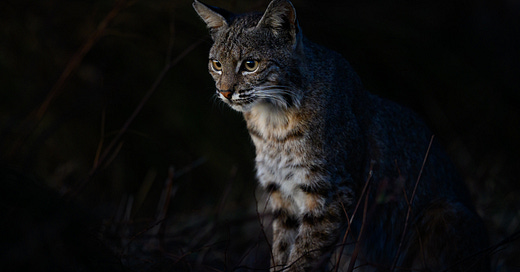



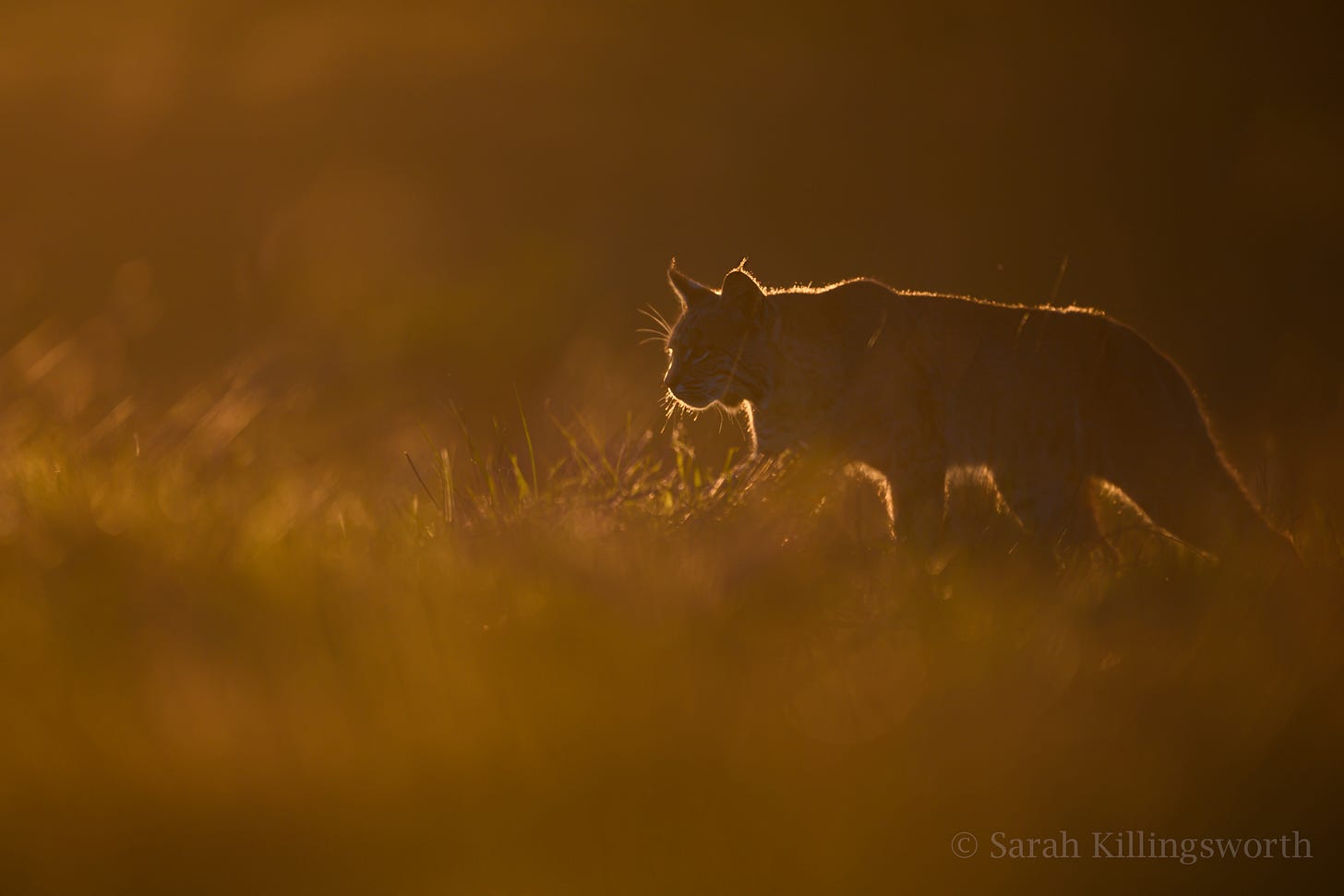
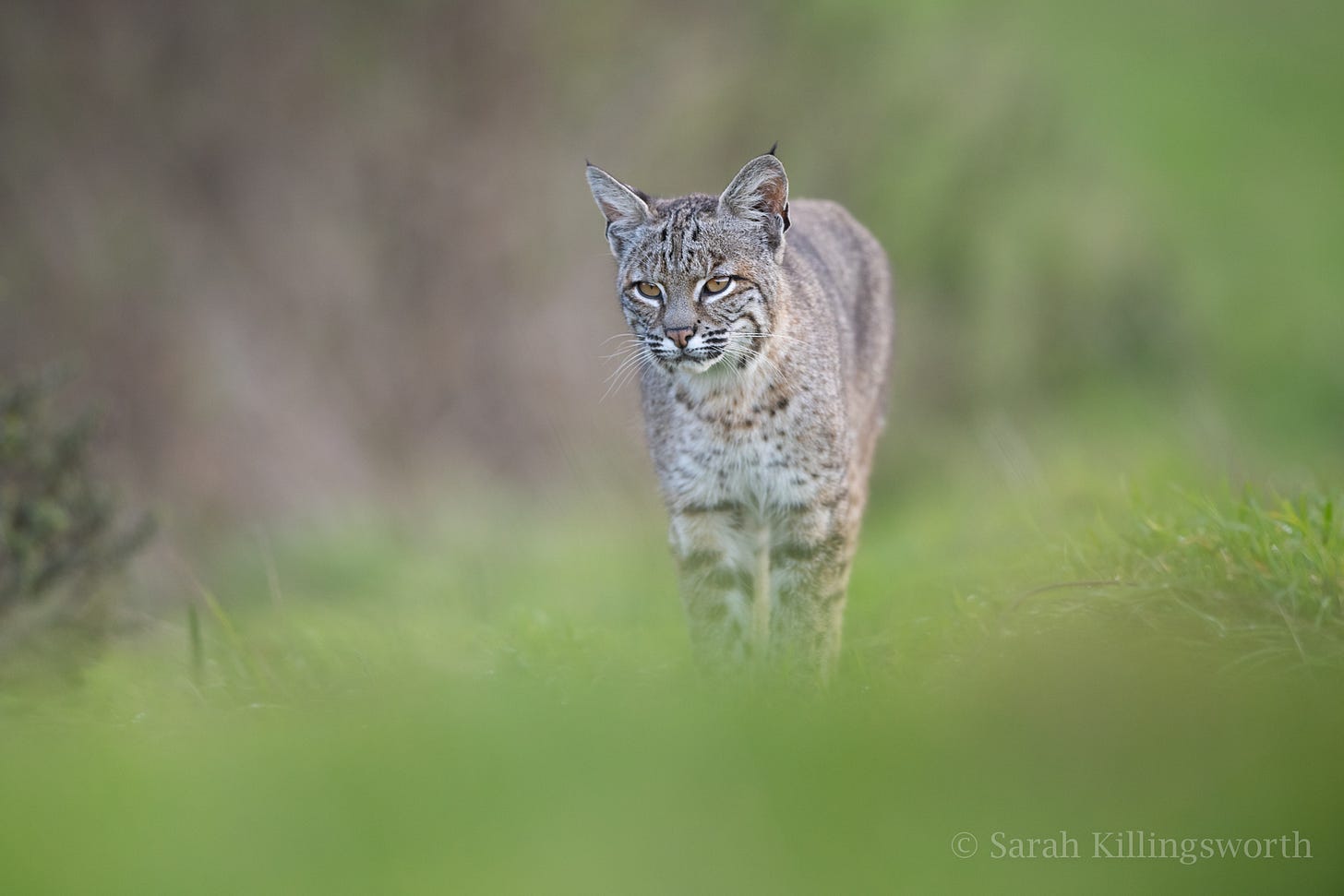
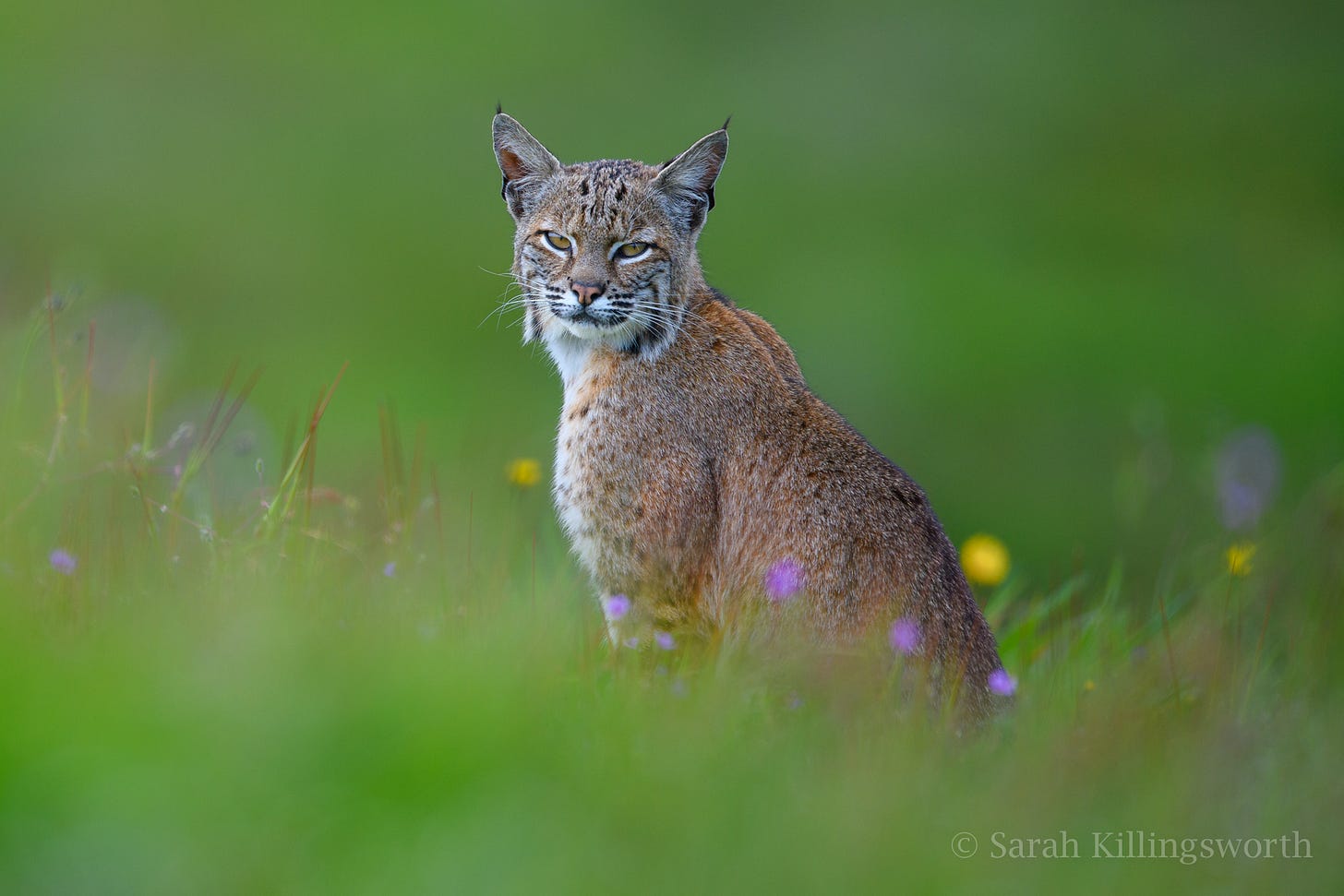
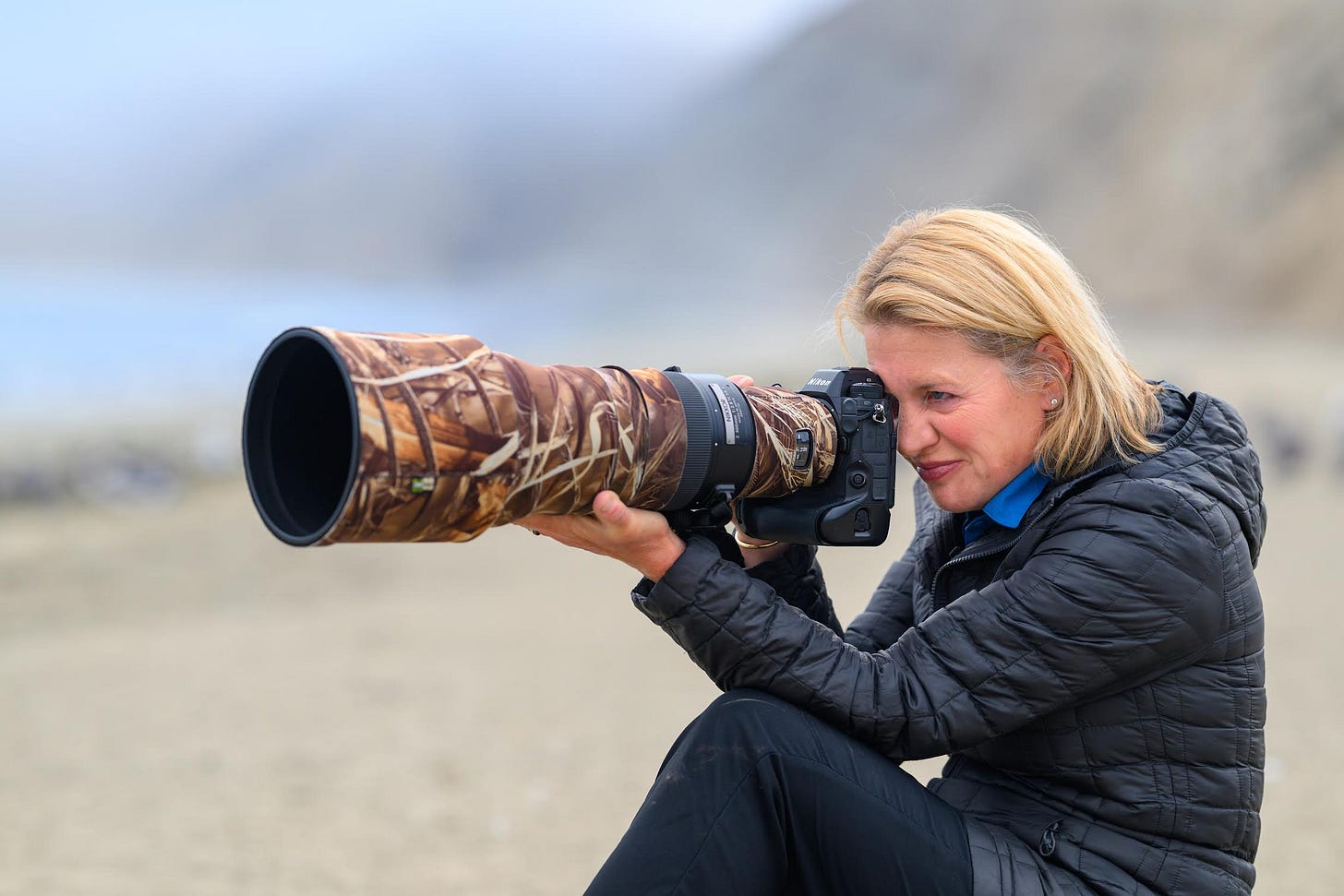
these photos are stunning!